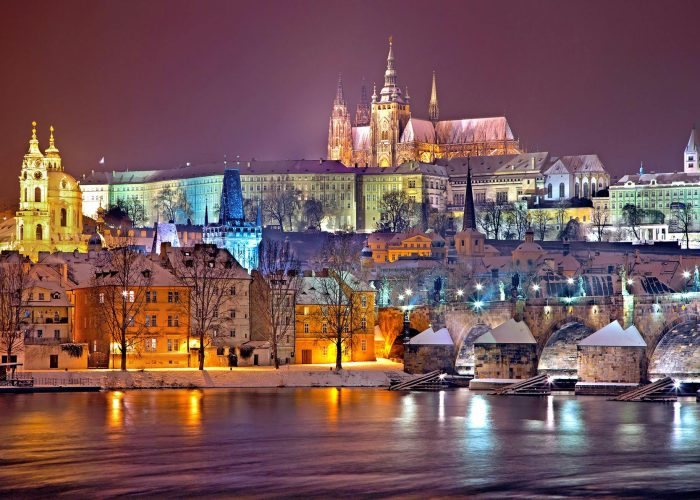
Europe
Welcome to the captivating world of Europe, a continent steeped in rich history, diverse cultures, and breathtaking landscapes. From the snow-capped peaks of the Alps to the sun-kissed shores of the Mediterranean, Europe offers a tapestry of experiences waiting to be explored.
With its mosaic of languages, traditions, and cuisines, Europe is a melting pot of diversity, where ancient civilizations have left indelible marks on the modern landscape. From the ruins of ancient Rome to the Gothic spires of medieval cathedrals, the continent is a living museum of human achievement.
But Europe is not just a relic of the past; it is a vibrant hub of innovation and progress. From the bustling streets of London and Paris to the cutting-edge technology hubs of Berlin and Stockholm, Europe is at the forefront of global innovation and creativity.
Join us as we embark on a journey through Europe, uncovering fascinating facts and stories that illuminate this remarkable continent. Whether you’re a history buff, a food enthusiast, or an avid traveler, Europe has something to offer everyone. So sit back, relax, and let us guide you through the wonders of Europe.
History
The history of Europe is a tapestry woven with the threads of countless civilizations, spanning millennia of triumphs, conflicts, and cultural exchanges. From the ancient civilizations of Greece and Rome to the modern-day European Union, Europe’s story is one of remarkable evolution and transformation.
The roots of European civilization can be traced back to the ancient Greeks, who laid the foundations of democracy, philosophy, and art. Their legacy was carried forward by the Romans, who established one of the most extensive empires in history, spreading their language, laws, and engineering prowess across the continent.
The fall of the Roman Empire in the 5th century marked the beginning of the Middle Ages, a period characterized by feudalism, the spread of Christianity, and the rise of powerful medieval kingdoms and empires such as the Byzantine Empire, the Holy Roman Empire, and the Carolingian Empire.
The Middle Ages also witnessed significant cultural and intellectual achievements, including the Renaissance, which saw a revival of interest in classical learning and the arts, and the Age of Exploration, which opened up new trade routes and brought Europe into contact with the wider world.
However, Europe’s history is also marked by periods of turmoil and conflict, including the Hundred Years’ War, the Protestant Reformation, and the devastating impact of the Black Death. The continent was torn apart by religious and political strife, culminating in the Thirty Years’ War, which ravaged much of Central Europe in the 17th century.
The Enlightenment of the 18th century ushered in an era of scientific discovery, philosophical inquiry, and political reform, laying the groundwork for the modern ideals of democracy, human rights, and secularism.
The 19th and 20th centuries saw Europe undergo profound changes, including the rise of industrialization, the spread of nationalism, and the two World Wars, which reshaped the political map of the continent and led to the emergence of new superpowers.
In the aftermath of World War II, Europe embarked on a path of reconciliation and integration, culminating in the establishment of the European Union, a political and economic union of 27 member states committed to promoting peace, prosperity, and cooperation across the continent.
Today, Europe stands as a testament to the resilience of the human spirit, a continent rich in history, diversity, and cultural heritage, where the legacy of the past continues to shape the present and inspire the future.
Facts About Europe
Here are some short fascinating facts about Europe:
Cultural Mosaic: Europe is a diverse tapestry of over 40 countries, each with its own unique heritage and traditions.
Iconic Landmarks: Europe boasts world-famous landmarks like the Eiffel Tower, Colosseum, Acropolis, and Tower of London.
Historical Influence: Ancient Greece birthed democracy and philosophy, while Europe’s Renaissance and Enlightenment shaped modern art, science, and philosophy.
European Union: The EU promotes cooperation and peace among 27 member countries, representing a significant example of international integration.
Linguistic Richness: Europe hosts over 200 languages, preserving diverse cultural identities alongside globally significant ones like English, French, and German.
Innovation Hub: Europe has given the world inventions like the printing press, steam engine, telephone, automobile, and internet.
Culinary Delights: European cuisine, from Italian pasta to French pastries, reflects rich culinary traditions shaped by history, geography, and culture.
Natural Beauty: Europe offers stunning landscapes, from Ireland’s coasts to Switzerland’s Alps, perfect for outdoor adventures.


